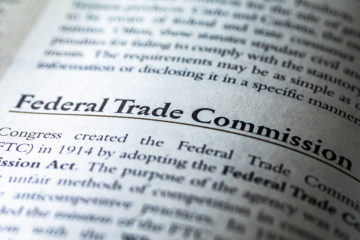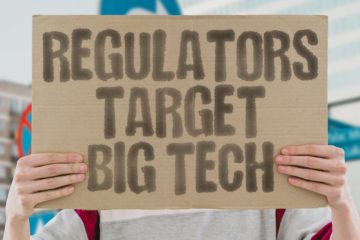In a new piece for RealClearMarkets, Norm Singleton explores how the Trump administration’s antitrust team is embracing a troubling trend: using Lina Khan’s aggressive, big-government approach to target political opponents under the banner of fighting “wokeness” and Big Tech censorship.
Far from restoring free-market principles, the rise of so-called “Khanservatives” suggests that the administrative state is alive and well—just under new management.
Read below:
“One reason the stock market initially responded favorably to President Donald Trump’s victory was the expectation that a second Trump term would reverse the antitrust polices of the Biden years. During the Biden Administration, Federal Trade Commission (FTC) Chair Lina Khan and Associate Attorney General (AAG) for Antitrust Jonathan Kanter aggressively advanced a Neo-Brandeisian agenda. Neo-Brandeisianism restores the old “big is de facto bad” approach to antitrust and combines it with a “holistic”approach that views antitrust as a tool to massively expand government’s role in the economy.
Under Khan’s leadership, the FTC filed a record number of lawsuits challenging mergers in areas ranging from sandwiches to handbags to grocery stores. The Justice Department also brought a number of high-profile antitrust cases, including one against Alphabet, parent company of Google and YouTube. Chair Khan and AAG Kanter were so litigious that some observers began referring to a merger tax. Following President Trump’s victory, Goldman Sachs predicted a 20% increase in mergers for 2025. The stocks of companies contemplating mergers—such as Capitol One and Discover—rose. The optimistic predictions seemed borne out when, according to consulting firm EY, there was a 29% increase in billion-dollar plus mergers, acquisitions, and other deals in January. However, that euphoria did not last long. According to Bank of America analysts, the value of mergers and acquisitions in February was only $130 million. This is the lowest level in four years.
Concern over Trump’s proposed tariffs certainly played a role in the dramatic drop in deal making, and the recent crash in markets across the globe was a response to his unexpectedly high and broad tariffs. However, another reason for the drop is Andrew Ferguson, who Trump picked to head the FTC, and Gail Slater, who Trump picked to head the Justice Department’s Antitrust Division— are Khanservatives. A Khanservative is a conservative who support using Neo-Brandeisian methods to advance conservative goals. While Chair Ferguson did promise to end Lina Khan’s war on business — he also promised to use antitrust to stop big tech censorship and crack down on companies that promote “wokeness.”
Like their progressive “Neo-Brandeisian” counterparts, the Khanservatives have a particular animus toward big tech. Progressives like Lina Khan dislike big tech companies because they see them as using their power to harm other businesses and consumers. Khanservatives main focus is how big tech platforms “censor” conservatives and other dissenters from the “woke” agenda. Ferguson’s first major actions as FTC head reflect his Khanservatism. Ferguson has issued a “Request for Information” regarding how concentration in the tech industry facilitates online-censorship. He also launched an investigation into whether corporations are illegally coordinating to advance Diversity, Equity, and Inclusion. Ferguson’s prioritization of what appears to be politically-motivated investigations may be one reason deal making has declined. Another reason is that both Chair Ferguson and AAG Slater have endorsed maintaining the 2023 revised merger guidelines which make it easier for the government to bring antitrust lawsuits. Their retention suggests the Trump 2.0 Antitrust Team will be just as aggressive—at least against certain businesses— as their predecessors.
Progressive Neo-Brandeisians and Khanservatives both agree that only big government can reign in big tech. But if the big tech companies were as invulnerable to competition as the Neo-Brandeisians of the left and right believe, they would not be changing their platforms to win back users from Tik-Tok. Similarly, recent history of businesses which lost conservative and thus profits by promoting a social or political agenda at odds with their customer’s values prove there is no need for the FTC or Justice Department to “punish” companies for going woke.”



0 Comments